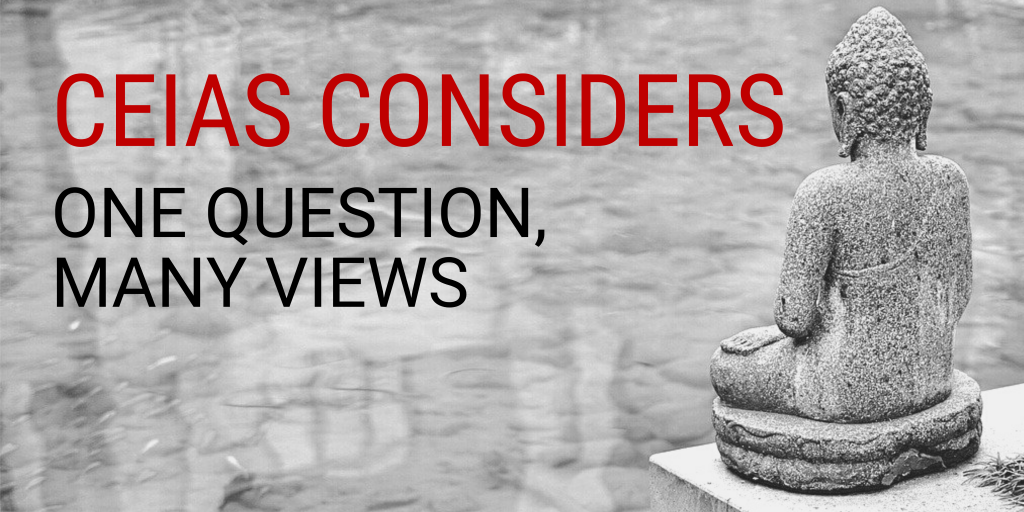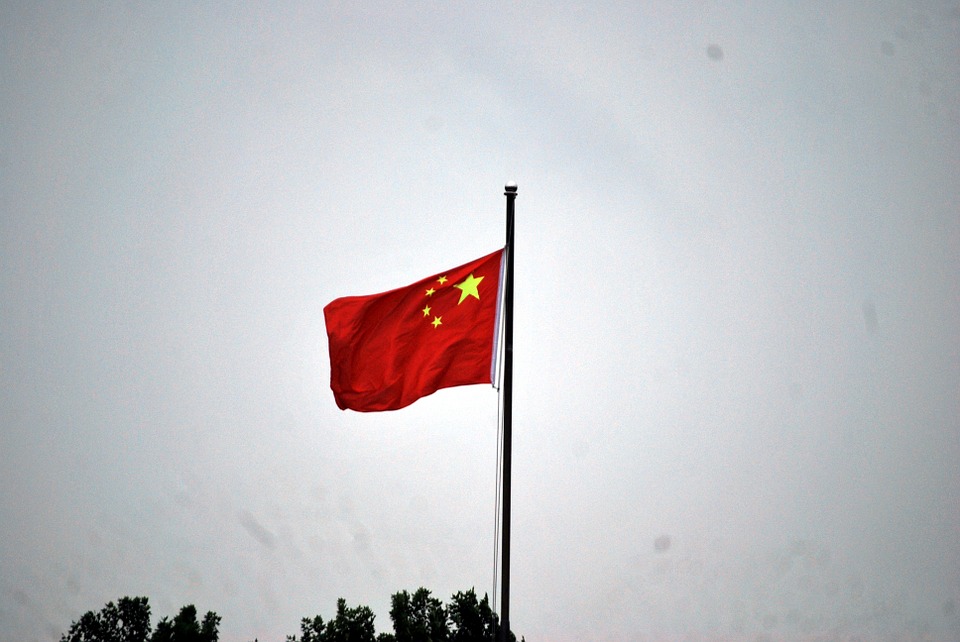
Will an expected change of government in the Czech Republic be the death knell to positive relations with China?
The legislative election held in the Czech Republic earlier this month appeared to herald a change of direction. The new, center-right SPOLU alliance won the popular vote by less than 40,000 votes, although the outgoing ruling party ANO picked up one extra seat in parliament. Incumbent Prime Minister Andrej Babiš claimed it was a success but the mathematics don’t look that way. SPOLU – a tripartite alliance formed between the Civic Democratic Party (ODS), the Christian Democrats (KDU-ČSL), and TOP 09 – went into the election saying they would cooperate with another new alliance as part of a so-called “democratic bloc”. That other alliance between the Pirate Party and the Mayors and Independents (STAN) won 37 seats, meaning a coalition between SPOLU and Pir-Stan would command a majority in parliament.
ANO, however, saw its partners defeated. The Social Democrats (ČSSD), which had been the junior partner in ANO’s ruling coalition, failed to win any seats in parliament for the first time in its history. So, too, did the Communist Party of Bohemia and Moravia (KSČM), which had informally backed ANO’s coalition in parliament since 2018.
Without any new partners, ANO looks set to eventually lose power. However, it may several months of post-election politicking for this to become reality. President Miloš Zeman, the loudest proponent of improving relations with China and Russia, said before the election that he would allow the leader of the largest party, not the largest alliance, to form the next government. That meant that Babiš. However, Zeman was taken to hospital on October 10th, the day after the election, and is now believed to be in intensive care. Babiš has claimed that Zeman told him he would be appointed prime minister. But much is still up in the air. If Babiš is appointed prime minister, he will most certainly lose a necessary vote of confidence in parliament. Then, either he will try to continue on without parliament’s support or be forced to concede. Alternatively, Zeman could eventually decide to appoint as prime minister the SPOLU leader, Petr Fiala, who would win a vote of confidence in parliament.
For this week’s CEIAS Considers, I asked experts what the likely change of government in the Czech Republic will mean for the country’s relations with China, a source of much controversy in recent years.
 Richard Q. Turcsanyi
Richard Q. Turcsanyi
Program Director at CEIAS
Czech elections will most likely result in a significant political reshuffling which will have important implications for the country’s foreign policy. In terms of China, the five parties who will probably form the government (ODS, STAN, TOP09, KDU-CSL, and the Pirates) are likely to take more assertive stances. As our survey from Autumn 2020 found, the voters of these parties had much more negative views of China than the voters of other parties. In fact, the voters of TOP09 and ODS are the most negative on China when compared to voters of any other political party in 13 European countries we surveyed.
Some of the concrete potential implications of this include more vocal criticism of Chinese human rights records, particularly in Xinjiang and Tibet, policies in Hong Kong, and towards Taiwan. On these topics, and others, the new Czech government will likely side with any international or EU initiative putting spotlight on China. It is also unlikely that Chinese companies will be allowed to invest in any potentially sensitive or strategic company in the Czech Republic.
One big diplomatic issue the new Czech government will have to address is how to approach the so-called 17+1 platform in which prime ministers of 17 Central and Eastern European countries meet annually Chinese Prime Minister (and sometimes even the President). The platform has been controversial as it may be perceived as undermining EU unity. A few months ago, Lithuania became the first country to publicly announce it would not participate in the initiative any longer. It is possible that the Czech Republic under the new government would also reconsider its participation although I personally guess it would not choose to explicitly “leave”. I can imagine easily, however, that there would be some effective downgrading to a lower level from the prime minister.
Ivana Karásková
Founder and leader of China Observers in Central and Eastern Europe (CHOICE), China analyst at Association for International Affairs (AMO) and researcher at Faculty of Social Sciences, Charles University
While in both Czech general and presidential elections, held in 2017 and 2018 respectively, China featured heavily in the political debates, this election was distinctively different. China as a political issue has faded away and almost disappeared.
Yet it may very well return on the agenda once the winning coalition of Together (Spolu) and PirSTAN (Piráti a Starostové) form the government. It is highly possible, yet unconfirmed at this stage, that the next Minister of Foreign Affairs will come from one of the winning coalitions. If that happens, I expect Czech China policy to change in two ways – in substance and in processes.
Both winning coalitions’ programs indicated that the Czech foreign policy will mostly focus on transatlantic ties and the European Union. When China was directly or indirectly mentioned, it was not perceived in a positive light. The programs called for strategic independence of Czech projects and companies, the exclusion of China from the buildup of the second block of the Dukovany nuclear power plant, and general support of human rights issues. The programs also hit upon greater cooperation in trade, diplomacy, or innovation with Taiwan, support for the Three Seas Initiative, and battling against disinformation and hybrid threats.
Thus I expect the Czech China policy not only to be more skeptical on China, more forthcoming to Taiwan, and, occasionally (when trade interests allow), also more confrontational.
The election may also impact the way how Czech China policy is conducted. The current Prime Minister Andrej Babiš has been rather indifferent to China in the past years. His disinterest allowed other Czech players to develop China initiatives and policies of their own. Thus, Czech foreign policy has displayed an interesting array of actors and interests. One line on China policy has been conducted by President Zeman. Another has been directed by the Ministry of Foreign Affairs led by the Social Democrats, a minor coalition partner, which is now out of the parliament. The weak position of the MFA created a void that was quickly filled by yet another, this time individual, players like Prague Mayor Zdeněk Hřib or the Senate President Miloš Vystril.
The victory of the center and center-right parties in the Czech election can help Czech foreign policy to speak again with a single voice, a crucial task ahead of the Czech EU presidency next year.
Jakub Janda
Director of European Values Center for Security Policy based in Prague
When the SPOLU-PirSTAN center-right coalition forms the next Czech government, it will have the most hawkish policies on China in Czech history. All five parties have spent recent years vocally opposing Chinese elite capture on the watch of Czech President Zeman and the out-going Babiš-Hamáček-Filip cabinet.
Their partisan positions and track record can be projected into the following anticipated policy decisions:
Strong demonstration of political support for Taiwan, in a similar way that Lithuania has shown – involving both multiple delegations and high-level meetings legitimizing Taiwan as a friendly and sovereign state actor, and also upgrading names of its bilateral diplomatic representations to explicitly use word “Taiwan”, not just “Taipei”. The Czech Republic already hosts Taiwanese investments which have created 24,000 jobs, according to CzechInvest agency. The country hopes to receive more, specifically in the chip-making industry.
One can expect this government to leave the 16+1 group as it is rightly considered to be a Chinese Potemkin village format with no practical benefits, possibly in coordination with other allies like Estonia or Slovakia who might be willing to join the collective exit.
Certain policy streams will be re-affirming the principled position of Czech security institutions against Chinese participation in 5G build-up and increasing the budget of cyber agencies.
This coalition will keep the (BIS) counterintelligence director Michal Koudelka in place as he is vocal in exposing Russian and Chinese influence operations.
A vocal human rights focus in recent Czech foreign policy can be expected, with explicit criticism of the genocide of Uygurs organized by the Chinese government, or by passing a Czech version of the Magnitsky Act. The Czech Foreign Ministry could and should expand its human rights assistance programs to individuals oppressed by the Chinese government.
Domestically, we can expect actions in three vulnerable areas. First, the screening of foreign investment has just been established at the Trade Ministry, hence with very little personal capacities which will need to be at least tripled. Second, Czech espionage legislation is outdated and doesn’t allow law enforcement to crack down on activities organized by actors like United Front organizations, so intensive debate within the Czech security establishment can lead to legislative changes similar to what the Baltic countries have enacted in recent years. Third, due to insufficient legislation, the Czech Republic represents a tax haven for now. These coalition parties mostly understand the problem and it is possible that new amendments might help to change the game.
Filip Šebok
China Research Fellow at the Association for International Affairs (AMO), Czech Republic
The Sino-Czech relations have been in a state of hibernation for some time as there has been little interest in promoting ties with China on the Czech political scene. Due to the many controversies as well as the general belief that ties with China have not brought any real benefit, supporting closer ties with China has become politically toxic. For Prime Minister Andrej Babiš, China was a marginal issue that he did not care about enough to establish a discernible policy stance, instead reacting to external stimuli on an ad hoc basis. Any positive agenda virtually dissipated from the bilateral ties.
For this reason, even if the new government will probably be composed of the generally China-skeptic SPOLU and PirStan party coalitions, China policy may follow the already established trend rather than resulting in a 180-degree turn. Still, the new government will probably be more outspoken towards China on issues such as human rights and also Taiwan. Czechia might also follow Lithuania’s example in stopping its participation in China-CEE cooperation.
A more assertive stance will surely create conflicts with President Zeman, although there is now a great deal of uncertainty over his ability to continue fulfilling his constitutional duties due to his poor health. With the Social Democrats and Communists out of the parliament, Zeman is now the only remaining key politician cheerleading for a strong relationship with China.
One might correctly point out that it was the ODS government of Prime Minister Nečas that made the first moves towards China ten years ago under the banner of economic diplomacy. However, I believe that this line of thinking on China is virtually dead and ODS is now more characterized by Senate President Miloš Vystrčil and his support for Taiwan. In any case, I do not envision that there will be any interest in reviving the “strategic partnership” between the two countries any time soon.









